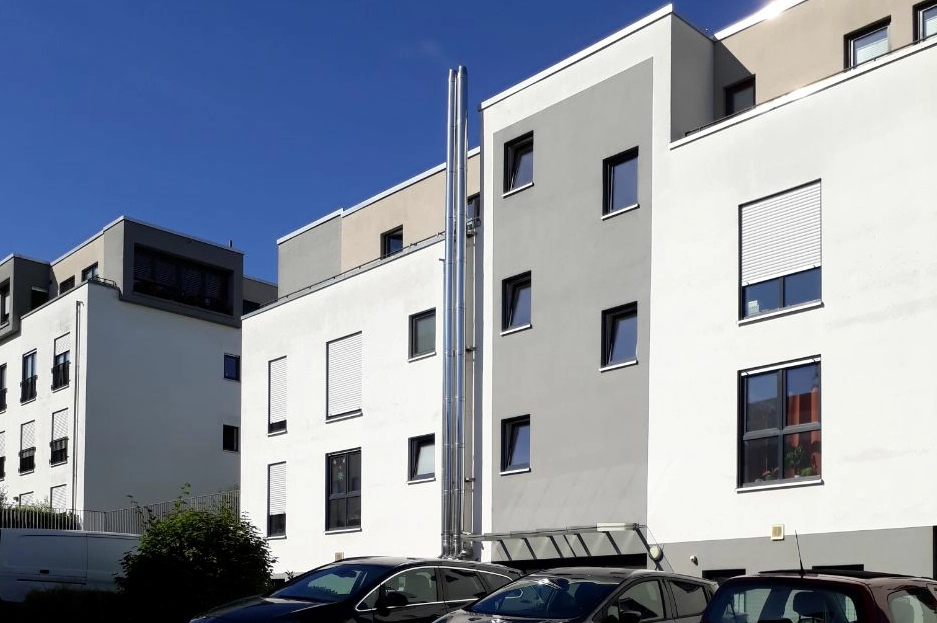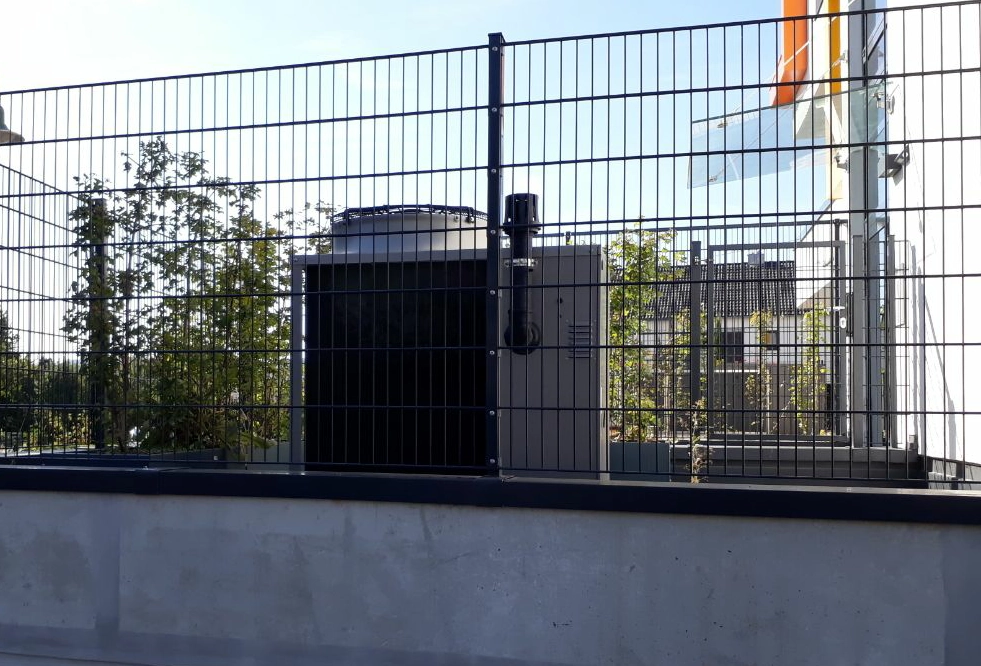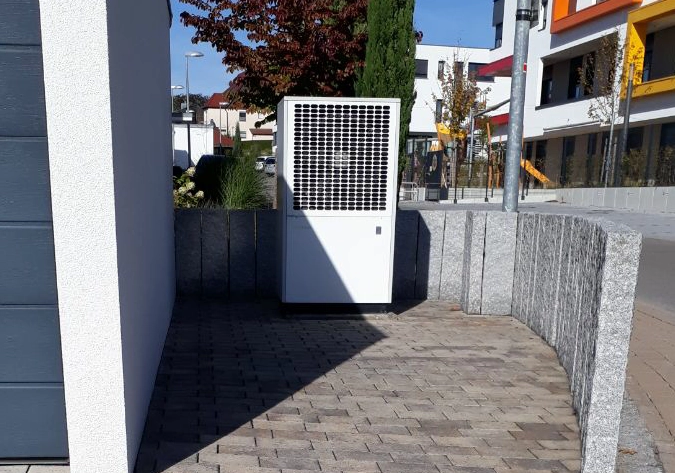Last Updated on September 26, 2023
The new heating law in Germany (in the media Heizungsgesetz, also known in full as Gebäudeenergiegesetzes, or, according to the German habit of abbreviating, GEG) was adopted with great noise and bang. Now the dust has settled a little and we can see what was born as a result. I must say that the worst thing is for those who need to decide right now, next year. Everyone else can save money, watch how others accumulate experience in use, and hope for the German bureaucracy, which will repeatedly delay the deadline. However, there is a risk that while you wait, the government will cancel compensation for reinstalling the heating system. Energy experts are definitely benefiting from the situation: instead of a bakery, we have an energy office that has moved into the entire first floor, which has suddenly become cramped in the old premises.
Homeowners association in Germany
Renovation cost in Germany. Who pays
Fighting condensation and mold in Germany
Germany apartments search. Decoding ads
Grundsteuererklärung – real estate declaration in Germany
Joint building ventury (Baugemeinschaft)
The government’s dream, of course, was that from the new year everyone would quickly switch to heat pumps, to which they were popularly explained that:
– they can’t make so many pumps at once
– pumps require renovation and space, which many houses do not have
– and certainly most don’t have the money for it
For example, our housing complex does not have the opportunity to install a heat pump, as the manager said at a meeting of residents. Although the complex is new, and the builders especially advertised its modern gas heating, which also generates electricity. Now we need to think about replacing this boiler, but the complex requires a lot of heat, which means the heat pump and place for it must be rather large. Therefore, we remain with the boiler and hope for the development of various combined technologies.
New heating law in Germany – timing for heating replacement
1. From January 1, 2024, heating in new buildings must consume 65 percent renewable energy. Old heating can work as it used to and can be repaired if it can be repaired.
However, January 1, 2024 is only the deadline for newly built residential areas (Neubaugebiet).
For new buildings outside new residential areas and already constructed buildings, different deadlines apply:
June 30, 2026 – for large cities with more than 100,000 inhabitants
June 30, 2028 – for smaller municipalities
By this deadline, municipalities must submit plans for the development of heating systems, for example through a district heating plant or a central biogas supply. If the commune manages to adopt its plan earlier, then the deadline will come earlier for the residents.
Attention Baden-Württemberg: here plans in major district cities must be submitted by the end of 2023 – this requirement was adopted back in 2020.
The most interesting thing is not described anywhere: how will the city plans be implemented in relation to the user? What deadline does the user have once the plans are made public? What responsibilities will the city have towards the user (the plan is not an obligation) – none are visible yet? How many years will it take to dig, taking into account the all-German replacement of bridges, the planned global renewal of railways and idle housing and road construction projects?
I think that the most will face this reality: there are wonderful plans from the municipalities that will be implemented in a wonderful future without any guarantee for the residents. As a result, residents will be forced to ignore these wonderful plans and change their heating to heat pumps, since they are required to replace heating now, and not in the wonderful future.
2. By 2045, they dream of ending fossil sources completely.
3. Since 2020, the rule for replacing old boilers has been in effect:
– you are obliged to change the Standard-/Konstanttemperaturkessel if it has been in operation for more than 30 years. Exception: those who moved into their home before February 2002.
– however, if there is a change of ownership (purchase or inheritance), the new owner is obliged to replace the old heating within two years
– very small and very large boilers with a capacity of less than 4 kilowatts and more than 400 kilowatts are also exempt from replacement
– it is not necessary to replace Niedrigtemperatur-Heizkessel or Brennwertkessel
In addition to requiring the replacement of old boilers of a certain type, the law sets requirements for thermal insulation.

4. The new heating law provides for transition periods and opportunities to defer the problem to the future.
Even after January 1, 2024 and before the regulations come into force, it is still possible to install new gas or diesel heating, but with the obligation to gradually switch to biological gas (15 percent from 2029, 30 percent from 2035, 60 percent from 2040, 100 percent from 2045).
If there is an approved plan for connecting to a central system, then you can heat with 100 percent ordinary gas before connecting it to the central system.
Those who decide to install such a boiler are required to obtain advice from an energy specialist. The expert will popularly tell you that gas will become more expensive and that the pump is much more efficient.
If the heating is broken and cannot be repaired, then you can temporarily install gas heating. The transition period will be 3 years, and in some cases (for example, if connection to a central heating is planned) – up to 10 years.
A long transition period also applies to those who have Gasetagenheizung.
For old owners (over 80 years old), the obligation to replace the heating is no longer required.
Those who have been receiving social benefits for more than 6 months (Bürgergeld, Kinderzuschlag, Grundsicherung), as well as Schwerbehinderte and Pflegebedürftige can count on at least a one-year postponement
Complex cases where replacement financing is too expensive compared to the cost of the home are also considered separately.
New heating law and tenants
How does new heating law apply to those who rent housing? The cost of reinstalling heating (minus compensation from the state) can be passed on to tenants in the amount of 10 percent of the cost, but not more than 50 cents per square meter per month for 6 years. In this case, numerous rules and clarifications must be observed. In doing so, the government protected itself from the wrath of the renting majority by shifting the financial burden onto homeowners.
For the landlord, replacement may be an overwhelming task: on the one hand, he is required to replace and, apart from the heat pump, there are very few options at the moment; on the other hand, he must prove to the tenant the efficiency of this heat pump and fulfill other requirements so that at least 10 percent could have been transferred.
What heating replacement options are there?
You can choose from the following options:
– heating pump
– central heating network
– gas heating with an intention of connecting to a hydrogen heating network
– heating with electricity directly
– heating based on solar energy (which is very actuell in “hot” Germany)
For old buildings it is also possible:
– biomass as fuel
– minimum 65 percent biomethane, biological liquid gas or hydrogen
65 percent can be proven by calculation by coming up with your own combination.
The state compensates:
at least 30 percent,
for those who are ahead, although he does not have to (Geschwindigkeitsbonus) – 50 percent,
for the poor (less than 40,000 euros of annual taxable income (that is, after all deductions)) – 70 percent
20 percent of the cost of modernization can be written off over three years from taxes. There is also a state credit.
How to find out your taxable income: How to calculate tax in Germany. What is written in Berechnung in Elster
Let us now consider the options in more detail.
Heating pump (Wärmepumpe)
A heat pump works like a refrigerator in reverse: heat extracted from water, earth or air converts the coolant into gas, which produces heat that is released into the heating system, while the gas condenses.

Cons:
- A heat pump requires space and, depending on the type of pump, often also soil drilling or storage. Accordingly, the larger the house, the more free space you need. Drilling ist not always allowed and the water may not be suitable.
- Heat pumps are noisy, especially air models. Therefore, there should be a minimum space from the installation to the neighbors’ house. Which one depends on the rules of the federal state, and in most states they have not yet been established. Where installed, they are 2.5-3 meters. Before purchasing a pump, it is recommended that you check with your town hall to find out what the city thinks about it.
- If the power goes out, the pump will also turn off. Among the recommendations on this matter, I have so far seen advice to also have solar panels or a fireplace
- if more heat is needed than the system produces, it begins to heat with pure electricity, with all the ensuing bills. If you have a system without drilling to a depth of 100 meters, then at an outside temperature of minus 10, where will it get the same heat that should turn liquid into gas?
- a consequence of the above – for the pump to be effective, you need to have very good thermal insulation
- Heat pumps aren’t particularly environmentally friendly, they’re just more efficient. Their environmental problems: insufficiently environmentally friendly electricity and environmentally harmful coolant. By the way, regarding the latter: the European Union plans to ban some types of coolants.
Pros:
government funding,
greater efficiency
and cheaper maintenance.
In fact, the main advantage is that there is no alternative. All other options are either not yet available, are expensive, or will be prohibited / will become more expensive.
Cost: 12-35 thousand euros. Waiting time – up to 1 year

„H2-Ready“
“H2-Ready” is a gas heating system that can switch 100 percent to hydrogen when it becomes available. Moreover, the introduction of this heating should already be firmly connected with plans for the construction of a hydrogen network. From 2030, this heating should be 50 percent from biomethane, and from 2035, 65 percent from hydrogen.
Information from the original source (my husband was trained in hydrogen): hydrogen is still VERY far from reality. There is no production in sufficient quantities, no networks, no profitability and no technologies that ensure safety during active mass use (hydrogen explodes very well). So far, the use of hydrogen as an energy source is sporadic and has little or no payback.
Central heating (Fernwärme)
Do you enjoy the site without cookies and maybe without ads? This means that I work for you at my own expense.
Perhaps you would like to support my work here.
Or Cookie settings change: round sign bottom left
There are only pros and one big minus – inaccessibility for the majority.
The central heating is also available in Germany, but, as a rule, only in large cities and some settlements located in close proximity to power plants. They promise to expand this network, but, again, this depends on funding and decisions of the communities and requires a lot of time (decisions are made over the years and take even longer to implement). Here we have a power plant that is visible from the window, but I don’t have much hope for the central heating, because there is a hill between us.
The cost of connection, if there is somewhere to connect, is from 4.5 to 12 thousand euros.
Solarthermie
A heating installation on the roof that uses solar energy to heat water, which is collected in a collector and then transferred to the heating system. As far as I remember old studies, this thing only works fully in warm countries and during the warm season. Therefore, in Germany it must definitely be combined with other types of heating.
It should be taken into account that if Solarthermie is built in as the only heating system, it is subject to compensation from the state, but if these are complex measures, they will offer a loan from the state, that is, it will be a completely different financial support.
Biomasse
Biomass is a possible solution for already built houses.
What refers to biomass is formulated differently in different sources. The government website says: Holzpellets, Scheitholz, Hackschnitzeln (wood chips), Strohpellets (straw pellets)
The newspapers also list fireplaces.
One source states that you must combine pellets with Solarthermie. In another – that biomass should be nachhaltig.
Conclusion: very good advice is needed regarding biomass. Considering that biomass also does not lie on the road and competes for territory with food production, this option is unlikely to become widespread.
Biogas
Biogas is still a rare and expensive thing, and no change in the situation is visible.
Other topics
#about buying a home
#for newcomers to Germany
#about rental housing
#about housing and everyday problems
#about politics
